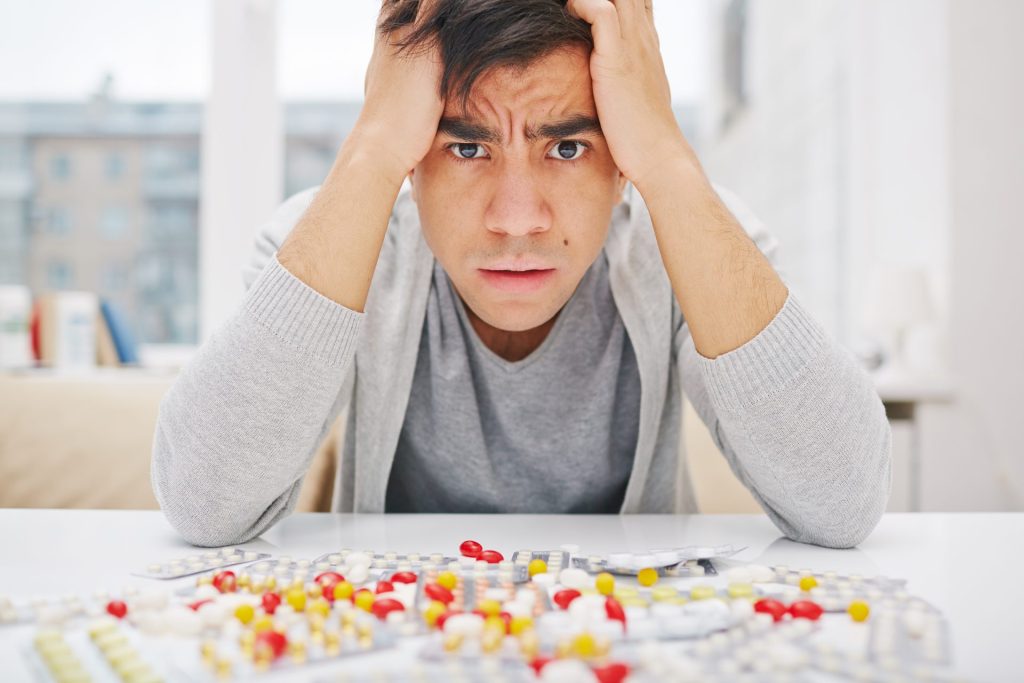Anxiety is a common mental health condition that affects millions of people worldwide. It can manifest in various forms, such as generalized anxiety disorder, panic disorder, social anxiety, and specific phobias. Living with anxiety can be challenging, impacting one’s daily life, relationships, and overall well-being. Many individuals with anxiety wonder if there is a permanent cure for this debilitating condition. In this blog, we will explore the concept of permanent anxiety cure, examining current treatment approaches, long-term management strategies, and the potential for lasting relief.
Understanding Anxiety:
Before delving into the notion of a permanent cure, it’s important to understand anxiety and its underlying causes. Anxiety is a complex condition that involves a combination of genetic, environmental, and psychological factors. It often arises from a heightened sense of fear and apprehension, leading to excessive worry and stress. Neurotransmitters like serotonin and norepinephrine also play a role in regulating anxiety levels.
Treatment Approaches:
-
-
Therapy:
-
Therapy, particularly cognitive-behavioral therapy (CBT), is widely recognized as an effective treatment for anxiety. CBT helps individuals identify and challenge negative thought patterns, develop coping mechanisms, and gradually confront their fears through exposure therapy. While therapy can provide significant relief, its effectiveness in achieving a permanent cure may vary from person to person.
-
-
Medications:
-
Medications, such as selective serotonin reuptake inhibitors (SSRIs) and benzodiazepines, are commonly prescribed to manage anxiety symptoms. SSRIs help regulate neurotransmitter levels in the brain, while benzodiazepines provide short-term relief for acute anxiety. While these medications can be beneficial in controlling symptoms, they may not necessarily cure anxiety permanently.
-
-
Lifestyle Changes:
-
Adopting a healthy lifestyle can also contribute to managing anxiety. Regular exercise, a balanced diet, sufficient sleep, and stress-reduction techniques like meditation and deep breathing exercises can help alleviate anxiety symptoms. While these lifestyle changes may not provide a complete cure, they can significantly improve overall well-being and resilience.
Long-Term Management:
-
-
Self-Care:
-
Engaging in self-care practices is crucial for long-term anxiety management. This includes developing healthy coping mechanisms, maintaining a support network, and incorporating stress-reduction techniques into daily routines. Regular self-care can help individuals recognize triggers, prevent relapses, and maintain emotional well-being.
-
-
Mindfulness and Meditation:
-
Practicing mindfulness and meditation can be powerful tools in managing anxiety in the long term. Mindfulness involves being fully present in the moment, accepting one’s thoughts and feelings without judgment. Meditation cultivates a sense of calmness and helps train the mind to focus and let go of anxious thoughts. By incorporating these practices into daily life, individuals can build resilience and reduce the impact of anxiety.
-
-
Holistic Approaches:
-
Some individuals explore holistic approaches to manage anxiety, such as acupuncture, yoga, herbal supplements, and aromatherapy. While these methods may provide temporary relief, there is limited scientific evidence to support their efficacy in permanently curing anxiety. It’s important to approach these alternatives with caution and consult with healthcare professionals.
The Possibility of a Permanent Anxiety Be Cured:
Achieving a permanent cure for anxiety may be challenging due to its multifaceted nature. Anxiety disorders can be chronic and may require ongoing management. While many individuals experience significant improvement or even remission of symptoms, the potential for a complete and permanent cure varies from person to person.
Factors Affecting Long-Term Outcomes:
-
-
Individual Differences:
-
Each individual’s experience with anxiety be cured is unique. Factors such as genetic predisposition, severity of symptoms, underlying medical conditions, and personal resilience can influence the likelihood of achieving a permanent cure. Some individuals may be more responsive to treatment than others.
-
-
Co-occurring Conditions:
-
Anxiety often co-occurs with other mental health conditions like depression or substance abuse disorders. Treating and managing these comorbid conditions is crucial for long-term recovery. A holistic approach that addresses all aspects of an individual’s mental health can contribute to better outcomes.
Conclusion:
While a permanent cure for anxiety may not be guaranteed, it is essential to focus on effective treatment, long-term management strategies, and overall well-being. Therapy, medications, lifestyle changes, and self-care practices can significantly alleviate anxiety symptoms and improve quality of life. Understanding that managing anxiety is an ongoing process can empower individuals to seek appropriate help, develop coping skills, and build resilience. By taking a comprehensive approach to mental health, individuals can work towards reducing the impact of anxiety and leading fulfilling lives.

